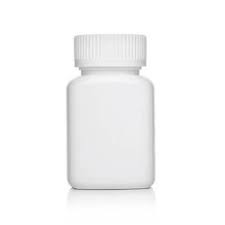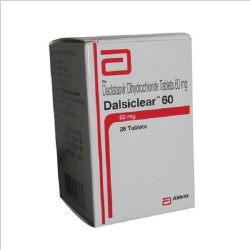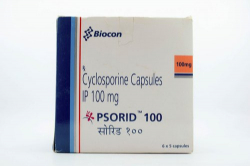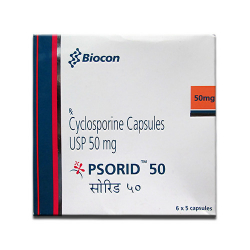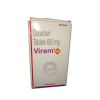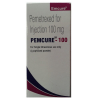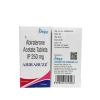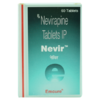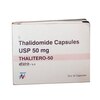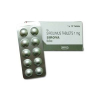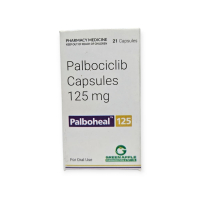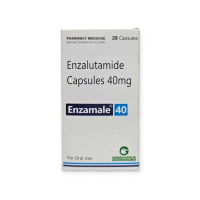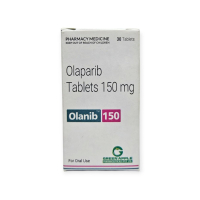Gengraf 25mg (Cyclosporine)
Gengraf 25mg used for the prohibits rejection of a transplanted organ.
DESCRIPTION
Cyclosporine is sold under the brand name Gengraf .
Gengraf belongs to immunosuppressant drug which has been needed since the early 1980s to inhibits organ
rejection after transplantation such as a liver transplant.
Gengraf which used as prescription drug under the guidance of medical practioners.
INDICATION
Used for the prohibits rejection of a transplanted organ.
Used to reduce inflammation in active rheumatoid arthritis and severe psoriasis.
MECHANISM OF ACTION
Cyclosporine consist of natural cyclic polypeptide immunosuppressant isolated from the fungus Beauveria Nivea.
The proper mechanism of action of Cyclosporine isunknown but may contains binding to the cellular protein cytophilic, reports in prevention of the enzyme calcineurin. This agent occurs to especially and reversibly prohibit immunocompetent lymphocytes in the G0-or G1-phase of the cell cycle. T-lymphocytes are preferentially prohibited with T-helper cells as the primary target. Cyclosporine also prevents lymphokine production and release.
ADME PROPERTIES
Incomplete and variable absorption from GI tract and bioavailability is 30%
The time to peak plasma concentration is 1.5-2.0 hours
Human plasma protein bound is 90%
In liver largely metabolized by the cytochrome P450 3A enzyme system. To minor degree is metabolized in gastrointestinal tract and kidney.
Primarily excreted in biliary and in urine 6% and 0.1% eliminated in urine as unchanged drug.
Half-life in adults is 19 hours and in children is 7 hours
DOSAGE AND ADMINISTRATION
Solid Organ Transplantation :
Safety measures of organ rejection in kidney, liver,andheart allogeneic transplants; has been required in concomitant usewith azathioprine and corticosteroids.
In Oral route :
For 4-12 hours pre-transplant recommended dose is 15 mg/kg orally for 1 dose required
For 1-2 weeks post-transplant recommended dose is 15 mg/kg/day orally divided twice daily required.
For reduce 5% per week until can tolerate recommended dose is 5-10 mg/kg/day orally divided twice daily required
In Intravenous (IV) route :
For 4-12 hours pre-transplant IV recommended dose is 5-6 mg/kg IV for 1 dose over 2-6 hours required.
For Post-transplant, until can tolerate oral therapy recommended dose is 5-6 mg/kg IV once/day required.
Solid Organ Transplantation, Paediatric (Off-Label)
In 6 months, young children have gettingGengraf to prevents solid organ transplant rejection.
Dosage is same as adults, even if children may need higher mg/kg dose than adults
In Oral route :
For 4-12 hours pre-transplant recommended dose is 15 mg/kg orally for 1 dose required
For 1-2 weeks post-transplantrecommended dose is 15 mg/kg/day orally divided twice daily required.
For reduce 5% per week until recommended dose is 5-10 mg/kg/day orally divided twice daily required.
In Intravenous (IV) route :
For 4-12 hours pre-transplant IV recommended dose is 5-6 mg/kg IV for 1 dose over 2-6 hours required
For Post-transplant, until can tolerate oral therapy recommended dose is 5-6 mg/kg IV once/day required
Rheumatoid Arthritis :
Prescribed for severe active, rheumatoid arthritis where the disease has not adequate responded to methotrexate; may be required in concomitant use with methotrexate.
Gengraf 1.25 mg/kg orally twice daily; may increase by 0.5-0.75 mg/kg/day after 8 weeks and again after 12 weeks if needed, not to exceed 4 mg/kg/day
Stop if no improvement observed by 16 weeks
Decrease the dose by 25-50% at any time to regulate adverse effects (e.g., hypertension, elevations in serum creatine greater than 30% pre-treatment level
Psoriasis :
The recommended dose of Gengraf is 1.25 mg/kg orally twice daily; may raise by 0.5 mg/kg/day after 4 weeks and every 2 weeks if needed, not to exceed 4 mg/kg/day
Stop if no improvement seen at 6 weeks on maximum daily dose of 4 mg/kg/day
Decrease the dose by 25-50% at any time to regulateside effects (e.g., high blood pressure, elevations in serum creatine greater than 30% pre-treatment level
SIDE EFFECTS
Serious side effects :
Liver damage - blood in urine; dark urine; pale stools; yellowing of your skin or the whites of your eyes; pain in your upper abdomen
Kidney damage. Symptoms may include: blood in urine
Heart problems. Includes swelling of your feet or lower legs
Lung problems. Symptoms may include: trouble breathing.
More common side effects :
Hypertension
Magnesium level is low in body
In kidneys, blood clots occur
Stomach pain
Hair growth
Acne
Tremors
Headache
Gums size increased.
PRECAUTION
While on treatment with Gengraf may have high risk of serious infections. It may also raise the risk of developing a tumor or skin cancer.
While on treatment with Gengraf weakens the immune system. If you administer this medication, you may be at higher risk for infections from bacteria, fungus, and viruses. These infections may be serious or life-threatening If patient have psoriasis and have been treated with either psoralen plus ultraviolet A therapy, methotrexate, coal tar, radiation therapy, or ultraviolet light therapy, you may have anincreased chance of occurring a skin disease while taking Gengraf 50mgcapsules.
While on treatment with Gengraf medication may cause hypertension and renal disease.
When administrating Gengraf 50mgmay cause liver repair and liver failure, specifically if you take high doses. It may even be fatal.
DRUG INTERACTION
- Adalimumab concomitant use with Gengraf both increase immunosuppressive effects and cause risk of infection. Avoid the usage of drug
- Gengraf Interaction with carbamazepine will reduce the level or effect of cyclosporine by affecting hepatic/intestinal enzyme CYP3A4 metabolism. Avoid the usage of drug or Use Alternate Drug.
- Acyclovir concomitant use with Gengraf both increase nephrotoxicity and/or ototoxicity. Modify Therapy/Monitor Closely.
- Gengraf increases levels of digoxin by lowering renal clearance. Avoid the usage of drug or Use Alternate Drug.
- Azathioprine concomitant use with Gengraf both increase immunosuppressive effects and cause risk of infection
CONTRAINDICATION
Gengraf is a contraindicated :
Hypersensitivity
Breastfeeding
Uses of Rheumatoid Arthritis (RA)/Psoriasis: Abnormal renal function, uncontrolled hypertension, malignancies Concomitant use of PUVA, UVB radiation, coal tar, methotrexate, other immunosuppressants will cause psoriasis
PREGNANCY
Gengraf Pregnancy category is C
The drug has no enough research done in humans to be certain how the drug might affect the foetus.
LACTATION
Gengraf excreted through breast milk and may leads to severe negative effects. Avoid using Gengraf during breastfeeding.
STORAGE AND HANDLING
The drug stored at 20°C-25°C.
Avoid the drug placing in moist or damp areas.
Protect away from light and high temperature.
MISSED DOSE
The patients forget to take a dose then have it soon the missed dose or leave the missed dose and follow regular schedule. Avoid taking extra dose
Consult the doctor for more details
| Brand name | Gengraf |
| Active substance | Cyclosporine 25mg |
| Packaging | 50 Capsules |
| Product form | Capsules |
| Strength | 25mg |
There are no comments yet













